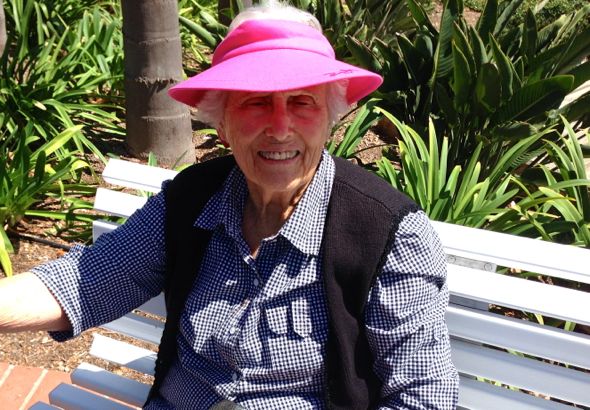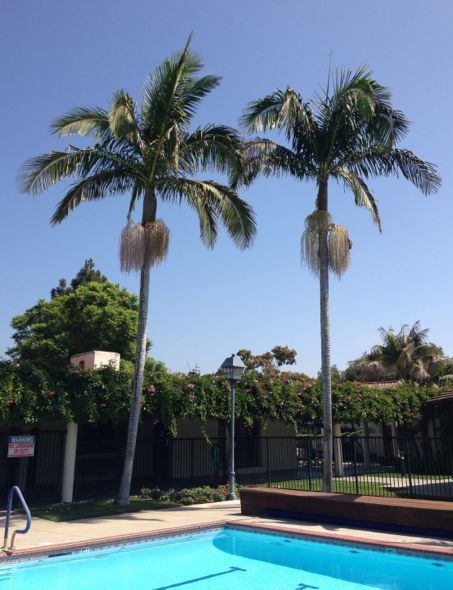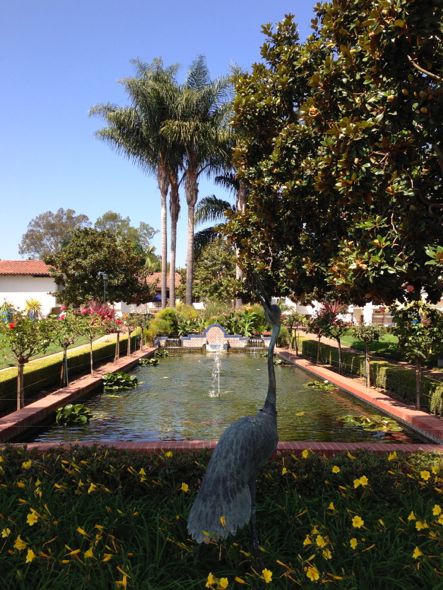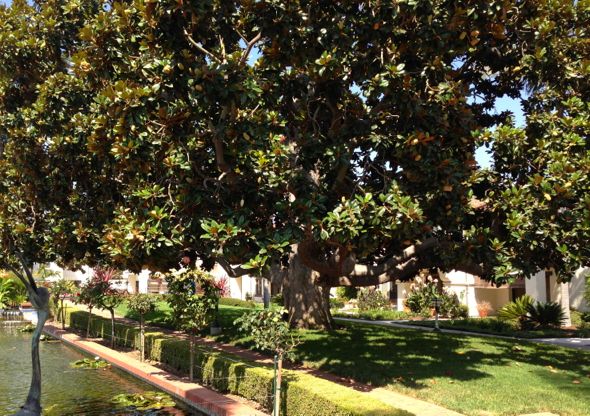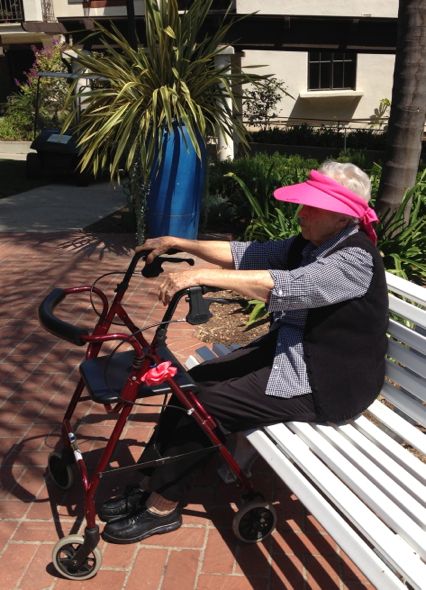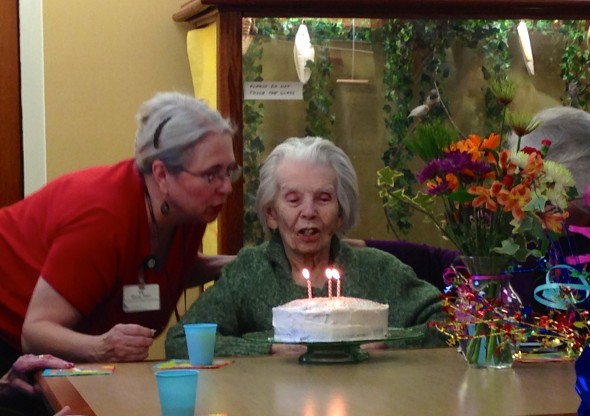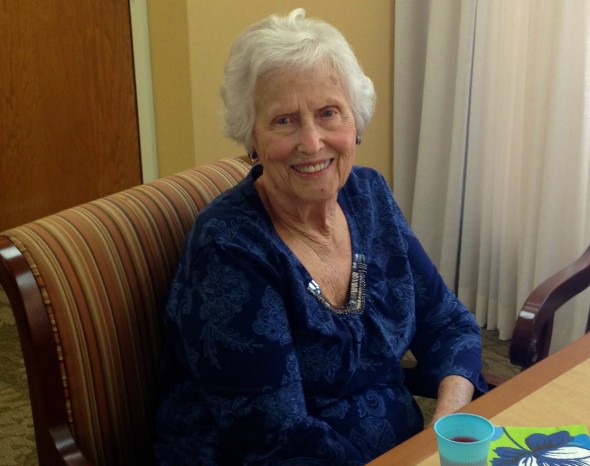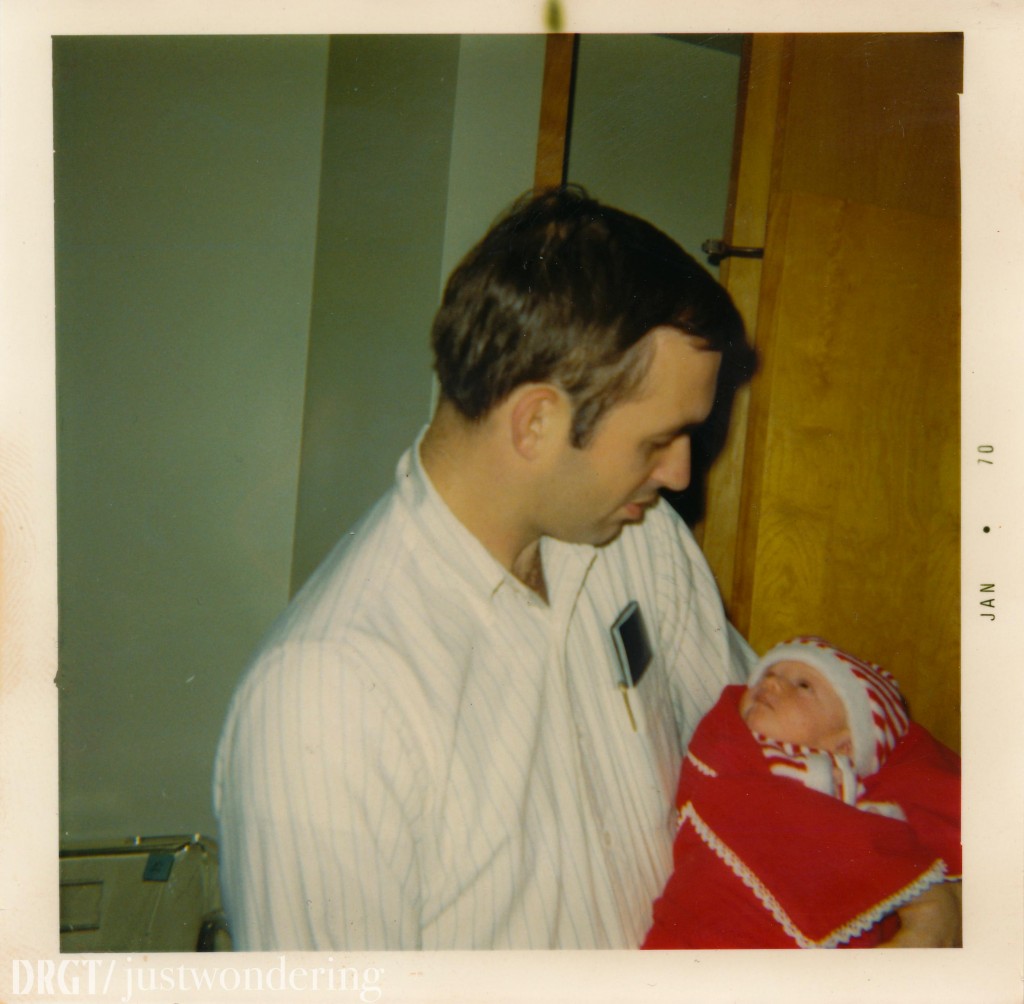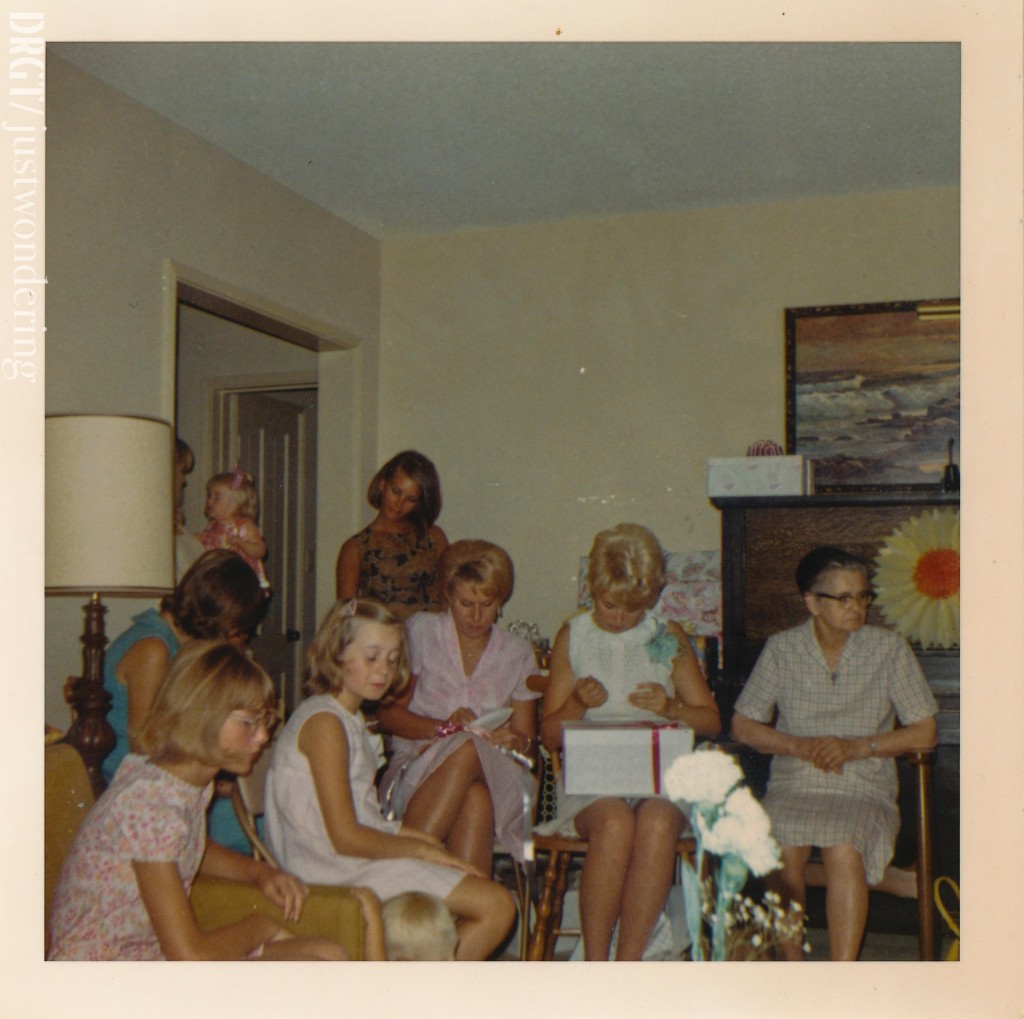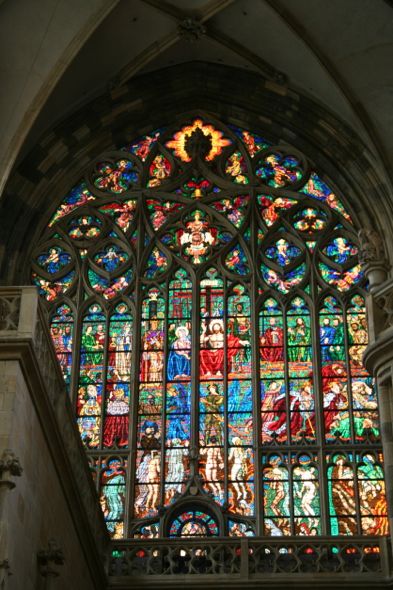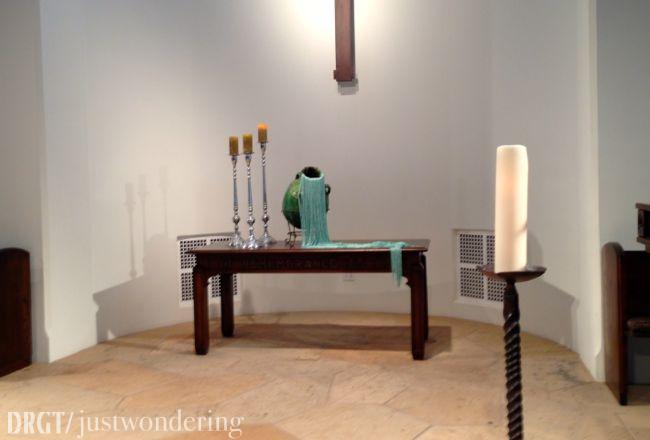As we journey with our moms down this last leg of the journey, I find myself doing a lot of reading and research about dementia. There was a link this week to an absolutely beautiful video, a video that tells the story of an Alzheimer’s patient who began to paint lovely watercolors, whose right brain flourished even while the left brain was diminishing.
My mom used to draw occasionally, and if she had her vision, I would be loading up on artist’s supplies for her. But she can no longer see well enough to write her name, much less wield a paintbrush. So I began to wonder about words, and letting them flow when relaxed. Not words she was trying desperately to remember, but descriptive words, feeling words, reflective words.
We went to lunch yesterday, as we try to do once each week. She needs a break from the dormitory-like existence of a memory loss unit and I need time with her when she’s not focused on introducing me – yet again – to every aide, every resident. We crossed the parking lot outside her unit, rode the elevator up one floor and wandered down to the swimming pool and patio. There is small cafe where we can order lunch in a box, and after we had eaten our fill, I began to ask her some gentle questions and then to record them in my iPhone, using the notes app.
When we had finished, I read out to her what she had said, what she had noticed, what she had felt.
And it was lovely.
And uproariously funny at a couple of points, because . . . well, she has dementia, you know! And not everything connects to everything else in the usual way.
Here, interspersed with photos from a gloriously beautiful afternoon, are my questions to her and her responses to me:
What do you see when we’re here having lunch by the pool?
I see that it’s wonderful,
that there is beauty here.
I love the tall and thin palm trees;
something about them reminds me
that I better get my hair done!
I appreciate the beauty of the day
because it is private here,
and the weather is great
And the tall trees surrounding
the swimming pool are beautiful.
I feel like putting on my shoes and walking.
I love sharing this beauty with you.
What do you hear when you’re sitting here mom?
Because I know there’s building going on,
I can hear that work.
Makes me want to take a walk
and see how far they’ve come.
I see my flag up there too.
And I stop and I think how blessed our lives are.
I’m glad that the flag is flying today.
There’s just enough wind so that it’s waving.
The flag is flying,
and it signals the comfort
of living in a good world.
I enjoy all the green things.
I like to see the wind move
across the swimming pool.
Seeing the water makes me think that
God’s in his heaven & all’s right with the world.
And Yankee doodle is alright too.
Because she had mentioned taking a walk twice during our shared reverie, I suggested we walk by the new construction and over to the koi pond and magnificent, large magnolia tree that gives that section of the campus its name.
Sitting in the sun is good medicine, I think.
And so is making small poems together.
